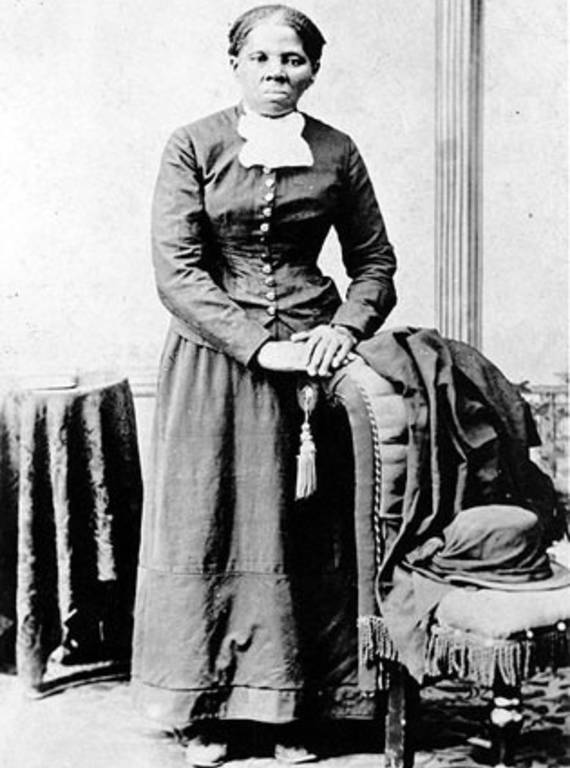While “do-nothing” is the adjective du jour for the 112th Congress, we argue that it is not a fair description for individual elected officials, but instead for the unfortunate, collective sum.
Throughout the 112th Congress, NPCA supported or at least monitored 140 national park-focused bills. Within the House and Senate, numerous bills were introduced over the past two years with goals of enhancing our current national park sites, as well as expanding the National Park System.

Harriet Tubman, a Civil Rights pioneer who risked her life to free other enslaved Americans, was not honored with a national park last year, though Maryland will open a state park dedicated to her legacy later this year.
Library of Congress photo.Members of Congress introduced 11 bills to establish new National Park Service sites. The proposed new sites included the Manhattan Project National Historical Park in Washington, New Mexico, and Tennessee; Valles Caldera National Park in northern New Mexico; a Waco Mammoth National Monument in Texas; Tule Springs Fossil Beds National Monument in Nevada; the Harriet Tubman National Historical Park and the Harriet Tubman Underground Railroad National Historical Park in New York and Maryland; and the First State National Historical Park in Delaware—the only state without a national park.
Legislators introduced another 13 bills that would have expanded current units of our National Park System, such as the proposed San Antonio Missions National Historical Park boundary expansion, the California Desert Protection Act (which included additions to Joshua Tree and Death Valley National Parks and Mojave National Preserve), the Gettysburg National Military Park Expansion Act, and the Oregon Caves Revitalization Act. Among many other benefits, these expansions would have enhanced wildlife corridors for endangered species, preserved iconic places in history, and provided a buffer to protect parks from development threats outside park boundaries.
Twenty-two of the bills introduced by the 112th Congress would have studied potential new national park sites, such as a historic trail that tells the story of early park management by the Buffalo Soldiers; the home in Xenia, Ohio, of the first African-American national park superintendent, Colonel Charles Young; and the Hudson River Valley of New York.
Legislation introduced during the 112th Congress proved that many legislators on both sides of the political aisle care deeply about protecting and enhancing our National Park System. This bipartisan support for our parks was mirrored in recent polling by NPCA and the National Parks Hospitality Association that found 95 percent of voters want the federal government to ensure our parks are protected for the future and available for their enjoyment.
Unfortunately, on Capitol Hill, good intention alone does not get the job done. Of these 140 bills, only a few very non-controversial items with little to no budget impact passed both houses of Congress to become law.
According to the Second Century Commission report, America is losing at least one million acres a year to development—roughly equivalent to the size of Delaware. Walking in Abraham Lincoln’s footsteps where he delivered the Gettysburg address; exploring the cool wonder of one of the world’s only marble caves; and discovering saber-toothed cat and dire wolf fossils, just miles from the Las Vegas strip are all at risk, if Congress does not begin to take action, now.
Fortunately, Congress does not hold the only power to create new national parks. Thanks to the Antiquities Act, a sitting president can also preserve natural and historic sites as part of the National Park System—a privilege which has been evoked equally by Republican and Democratic presidents over the years. President Obama used the Antiquities Act to establish two new national park monuments over the last two years: Fort Monroe National Monument in Virginia and the César E. Chávez National Monument in California. Fort Monroe preserves and honors the pivotal role that the site played in ending slavery in America, and the César E. Chávez Monument recognizes the leadership role of the influential labor leader in the farmworkers’ movement and history, and is the first national park to honor a contemporary Latino American. President Obama’s America’s Great Outdoors initiative, the National Park Service’s Call to Action report, and the National Parks Second Century Commission report all call for advancing and diversifying our country’s national parks, to protect and honor our heritage.
Now we need Congress to help preserve more of America’s history before it is lost. As the 113th Congress takes office, we urge our new and returning legislators to do more than their predecessors and take the next step. Reintroduce and move forward these bills that will benefit gateway communities and urban areas, protect precious natural resources, and ensure that our National Park System truly reflects our rich history and shared heritage.
About the author
-
 Kati Schmidt Director, Communications, Alaska, Northern Rockies
Kati Schmidt Director, Communications, Alaska, Northern RockiesKati Schmidt is based in Oakland, CA, and leads media outreach and communications for the Pacific, Northwest, Northern Rockies, Alaska, and Southwest regions, along with NPCA's national wildlife initiatives.